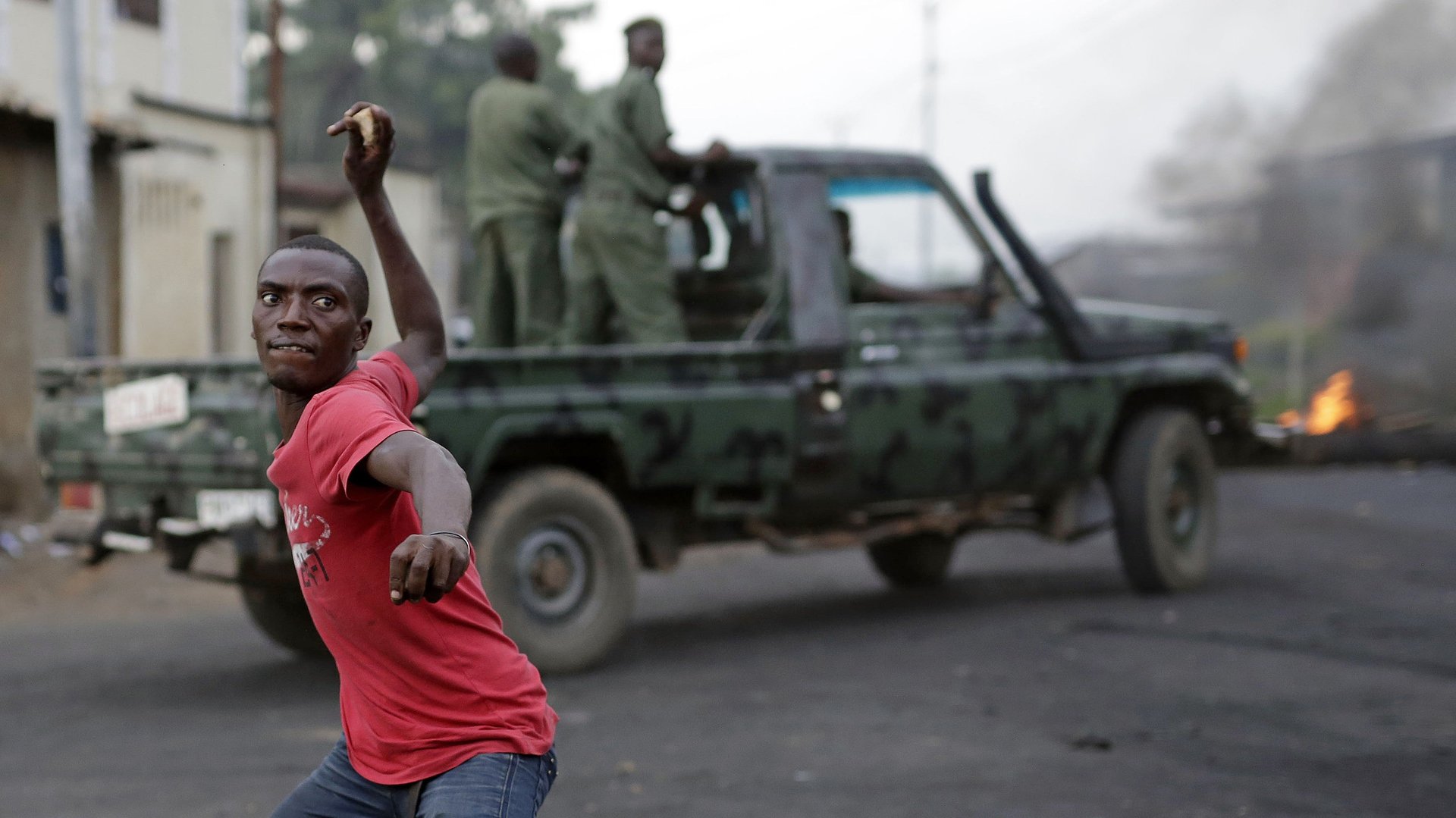Burundi locks down social media as political unrest grows
As Burundi continues to be rocked by violent political protests, now concluding their fifth day, the country’s government cut off mobile access to popular social media platforms in what is presumably an effort to suppress the unrest.


As Burundi continues to be rocked by violent political protests, now concluding their fifth day, the country’s government cut off mobile access to popular social media platforms in what is presumably an effort to suppress the unrest.
A source confirmed to the AFP Wednesday that the East African country’s telecommunications regulator, ARCT, ordered operators to block mobile access to social networks and messaging services including WhatsApp, Twitter, Facebook and Tango. Not all internet access is blocked, but Burundians primarily use the internet on mobile. Burundi authorities are likely to have blocked access to prevent social media apps being used to organize protest gatherings.
Burundi is protesting against incumbent president Pierre Nkurunziza’s bid for a third term as president. The opposition claims his run is unconstitutional. Tens of thousands have fled the country fearing a repeat of the violence in Burundi’s vicious decade-long civil war which ended in 2005. Since this latest uprising began at least six people have died during the protests.
Tom Malinowski, US assistant secretary of state for democracy, human rights and labour arrived in Burundi Wednesday and met with Nkurunziza.
“I left the president with the thought that this country with its very complicated and difficult history is like a boiling pot, and that if you try to put a lid on that pot it doesn’t stop boiling. It risks boiling over,” Malinowski told reporters.
Digital rights group Access called on the United Nations to condemn the social media shutdowns, saying that they violate “the right to freedom of expression by denying the right of persons to seek, receive, and impart information.”
“Shutdowns frequently occur during periods of civil unrest, directly impacting the right to association. As a result, shutdowns often precede and enable egregious human rights violations because journalists and witnesses are unable to effectively report on repressive actions by state and nonstate actors.”